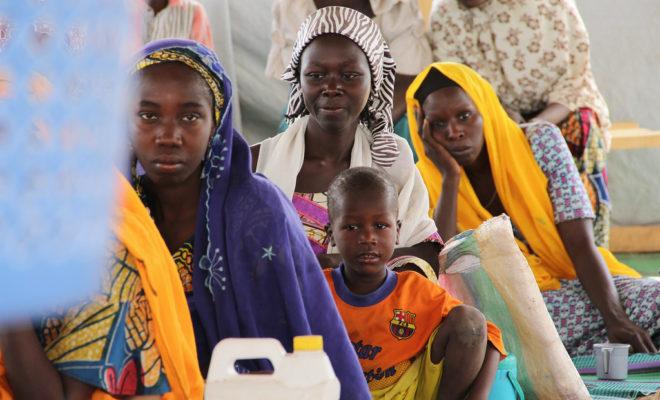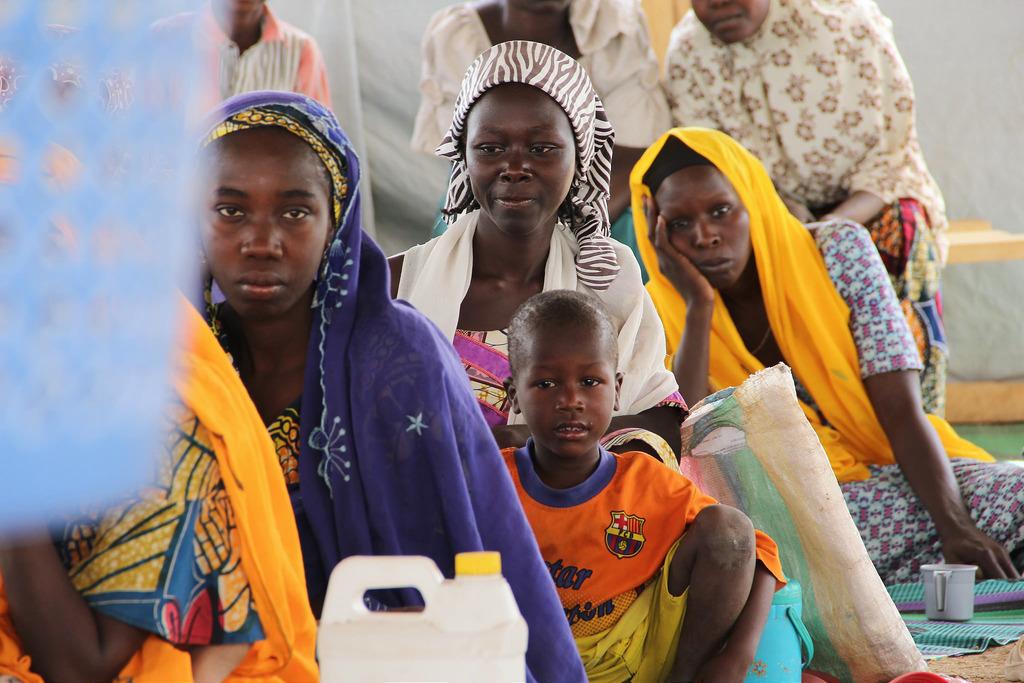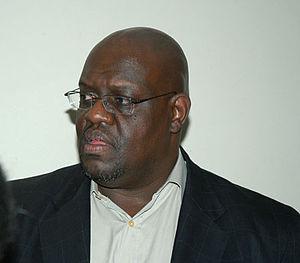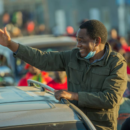Cameroon’s forced returns of Nigerian refugees leads to more tragedies

Cameroon’s forced deportations are not just putting refugees in peril, but potentially undermining the fight against Boko Haram.

At a camp for refugees in Minawao, Cameroon, near the border with Nigeria. Credit: OCHA/Ivo Brandau.
On 29 July, a Cameroonian army truck driving through the country’s Far North hit an improvised explosive device. In the resulting explosion, six people died and twelve more were badly injured.
This kind of tragedy is perhaps inevitable in the war between Cameroon’s military and the Islamist militant group Boko Haram. But those killed were neither soldiers nor Cameroonian. The deceased, and six of the injured, were in fact Nigerian refugees in the process of being deported – against their will and in violation of international law.
Since 2015, Cameroon has forcibly removed tens of thousands of asylum seekers back to north-east Nigeria despite warnings that the region remains unsafe. This has put them at risk of Boko Haram attack whether during the precarious journeys or once they have returned to Nigerian camps, which have been targeted.
“It is still not safe to drive from Cameroon into places like [the Nigerian border towns] Pulka and Banki,” says Yusuf Chiroma, a leading member of the Borno Community Coalition, which provides humanitarian assistance to internally-displaced persons (IDP). “The attack on returnees by Boko Haram should prove to Cameroon that forcing refugees back to Nigeria could lead them to death.”
Chiroma also points out that IDP camps in Nigeria are also now increasingly over-stretched. These settlements are facing serious water and food shortages as populations have swelled. Many more refugees who have been forcibly returned to Nigeria have died of severe malnutrition or illness after the journey.
“My six year old daughter died of illness in September [2017], less than four months after Cameroonian soldiers took us out of Minawao, beat us mercilessly, and forced us into a truck which took us to the border,” says Binta Ahmed.
“My son started to run temperature as soon as we departed Cameroon and began to complain he was feeling weak,” says Amina Bukar. “Because he had nothing to eat or drink in the first two days we arrived Pulka, we lost him.”
Violating international law
The government of Cameroon has sometimes denied deporting refugees, though it has also claimed, without proof, that the influx of people poses a security and economic threat to the country.
In a September 2017 report by Human Rights Watch entitled They Forced Us Onto Trucks Like Animals, the NGO estimated that over 100,000 refugees had been returned. It recorded several instances of soldiers using violence and of children being separated from their parents.
The United Nations Refugee Agency (UNHCR) has consistently warned Cameroon about its violation of the law of non-refoulement. Following the 29 July attack, the body reiterated its criticism.
“This tragic incident is a disappointing testament of continuing forced returns (refoulements) of refugees and asylum-seekers from Cameroon, despite numerous appeals by UNHCR to the Government of Cameroon to respect its obligations,” said Valentin Tapsoba, Director of UNHCR’s Regional Bureau for Africa. “The forced return of refugees and asylum-seekers is in violation of the principle of non-refoulement which constitutes the cornerstone of international refugee law to which the Cameroonian State is party.”
In March 2017, concerns about forceful returns had led Nigeria, Cameroon and the UNHCR to sign the Tripartite Agreement for the Voluntary Repatriation of Nigerian refugees living in Cameroon. The pact agrees that “repatriation of Nigerian refugees will be done solely on the basis of their freely expressed will” and will only be done “when the conditions are favorable for the return of refugees in safety and dignity to the place of their final destination in Nigeria”.
It didn’t take long, however, for Cameroonian authorities to act contrary to the agreement. In the same month the agreement was signed, more than 2,000 were returned to Nigeria.
Playing into Boko Haram’s hands?
Cameroon’s forced removals have put thousands of Nigerians under great personal danger. But the policy also has broader implications and effects.
As Aimée-Noël Mbiyozo notes, the deportations play into the hands of Boko Haram’s message that countries in the Lake Chad Basin are unwilling to protect the people they govern. “States that violate international and national human rights laws, and expose vulnerable people to imminent threat and poverty, lend significant weight to Boko Haram narratives,” she has written.
The influx of IDPs into northeastern Nigeria also exacerbates the severe water shortages and food crisis affecting the region. Boko Haram has also often exploited this situation by recruiting vulnerable and desperate men and women with financial incentives. “By repatriating people fleeing Boko Haram, Cameroon is forcing vulnerable people into situations that inherently contain many of the factors that fuel radicalisation,” adds Mbiyozo.
Last year, Nigeria strongly condemned Cameroon’s actions, but did not issue any counter-measures. With hundreds of forced deportations continuing, however, it may only be a matter of time before the government threatens reciprocal action. In the past, Abuja has deported nationals of countries that forcefully repatriate Nigerians. If relations between the two neighbours deteriorate, it could undermine their collaborative efforts to combat Boko Haram.
Before the rise of the Islamist insurgency, Cameroon was known for its relative generosity in hosting tens of thousands of refugees from the Central African Republic, Chad, and Nigeria. But today, that image has shattered. Cameroon no longer guarantees the freedom and safety of all those who have fled to its camps. Instead, it puts many of these vulnerable individuals in harm’s way. In doing so, it may also be putting itself in harm’s way by playing into Boko Haram’s hands.






